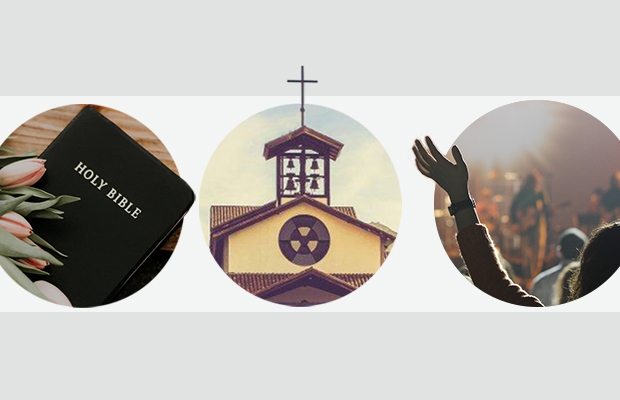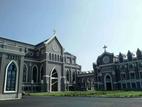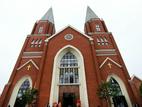The unexpected outbreak of the pandemic has had a direct and far-reaching impact on all sectors including Christian churches nationwide. In mid-April, CCD had an online interview with three members of the clergy from different regions to discuss: What impact does the outbreak have on the church?
The vast majority of churches had to suspend their on-site gatherings since the 23rd of January. All three millennial participants observed that while some churches have continued their regular events by live-streaming Sunday sermons on WeChat, many churches composed mainly of middle-aged and older believers are struggling to adopt to this new model of online worship. Even though some churches provide continuous online pastoral care, the quality of it is worrying as believers at home are invisible at the other end of the line.
The three participants who shared their observations and reflections represent different perspectives.
Brother L, a cell group member from eastern China, was born in the 1980s.
Brother X, a youth group cell leader from eastern China, was born in the 1990s.
Brother M, a non-ordained pastor from central China, was born in the 1980s.
Brother L: An emerging phenomenon is this: large urban churches that rent good office space are now under greater financial pressure because of the shrinking financial donations brought by the suspension of on-site gatherings. Such churches usually borrow a lot of money that they need to repay. They do not have much savings. Even one month without income puts them under a lot of pressure to repay their loans. Some churches in Canada are like this too. However, small churches can keep going for a while.
Brother X: Actually, some big churches have their own properties and savings so it isn’t a problem. Other churches can also survive if they pay their rent on an annual basis rather than monthly. For instance, a fellow believer I know told me his church paid rent annually. If there is no need to pay rent for months it will be okay, but if the outbreak doesn’t end, and there are predictions that it might continue into the second half of 2020 or even into 2021, there will be massive problems.
Brother M: My city church is tiny. People here are resuming work and business. Everyone is back to living a normal life. My church is also slowly beginning to resume.
Brother L: Now some small churches are resuming, but these are unknown, palm-sized fellowships with no more than 10 members. Their small size allows them to meet, but if there are more than 10 their neighbours might panic, so it is hard to resume big churches for the time being.
Brother M: The outbreak has had an impact on the Church, but it is important to continue services. Now congregations are also eager for online ministries.
Brother X: Concerning online services, the reactions can be very different. A dedicated believer may participate in nearly 10 services in one day but the lazy none. Although online ministries can be done, the home environment can be very distracting. Children, cooking, housework—all these can break a viewer’s concentration and lead to a loss of sacred space. Plus, you can also change from one church to another very easily because the cost is low, and it can be done with one click on your smartphone.
Many churches find online attendance is only half that of on-site services. This will hit bigger fellowships hard. Now that services are online, individuals will cling to the online services of their own fellowship or home church. Even after the outbreak ends, it would still be difficult for the individual to return to on-site gatherings even though businesses are resumed. Since they are all online, why not continue to participate in the home church? Even if the individual is introduced to a new church by the home church it would not work. After all, everything is online anyway so home churches simply keep their own congregations, especially those that do so well as in Wenzhou and Ningbo. Once the outbreak ends, the on-site gatherings will surely recover slowly but not at once. On-site gatherings cannot be replaced by online service.
Brother L: It is impossible to go back to the state before the outbreak. The survival rate of the remaining small churches is relatively high. The outbreak can also affect their beliefs and many of their views, leading to much reflection.
Brother X: After the outbreak, there could be a major shift as believers abandon their original church to worship and serve in other churches. The cost of changing churches online is low, so many believers may choose a church that suited them better after the outbreak. In the post-pandemic era, the believer base is very likely to be reshuffled. Some churches may decline or even close.
Brother L: It will be the same for some denominations abroad. The outbreak has led to a lot of Christians and churches reflecting on their future. When the outbreak first occurred, it was like Doom’s Day. At the beginning of the outbreak, the Charismatics were active and propagating their views on the coming apocalypse. It turned out that their prophecies were false and groundless. Many people associate the pandemic with the apocalypse and events in the Book of Revelation. However, many fail to see how this outbreak is different from smallpox, the bubonic plague and other pandemics. The difference is that now plagues like this mainly rely on the power of the state and society for prevention and control. When the Black Death struck in the Middle Ages, the power of the state and society was low. At that time Christianity was a state religion, beyond and above the state, so Christian communities responded by doing prevention work. But now the status of religions in society has declined. If the outbreak continues for a year or two, large churches may gradually disappear. The outbreak has made the current system of the Church hard to maintain. Personally, I think the future will emphasize a community of faith rather than a visible church.
Brother M: I have a different opinion and view. Some people have no options because of their environment. They have only one church in their area and can only go to that one church. They do not have other options for a faith community.
Brother L: It is different now from the Cultural Revolution. During the Cultural Revolution, there were no cultural events or entertainment for people to follow. So there will be little change for believers after the outbreak because there are many other cultural events to choose from if no church services are available. For this group of believers, the outbreak will only change churches after the end of it. Of course, the outbreak will make many cold Christians thirstier for faith and pray more. But I think it is hard for new believers to emerge because the Church has reached a bottleneck. Overall Brother X is more optimistic about the outlook. I am more pessimistic and think this time is both an opportunity and a challenge. But one thing brother X is exactly right in saying is that the rise of the ordinary believers after the outbreak is inevitable.
- Translated by Charlie Li












